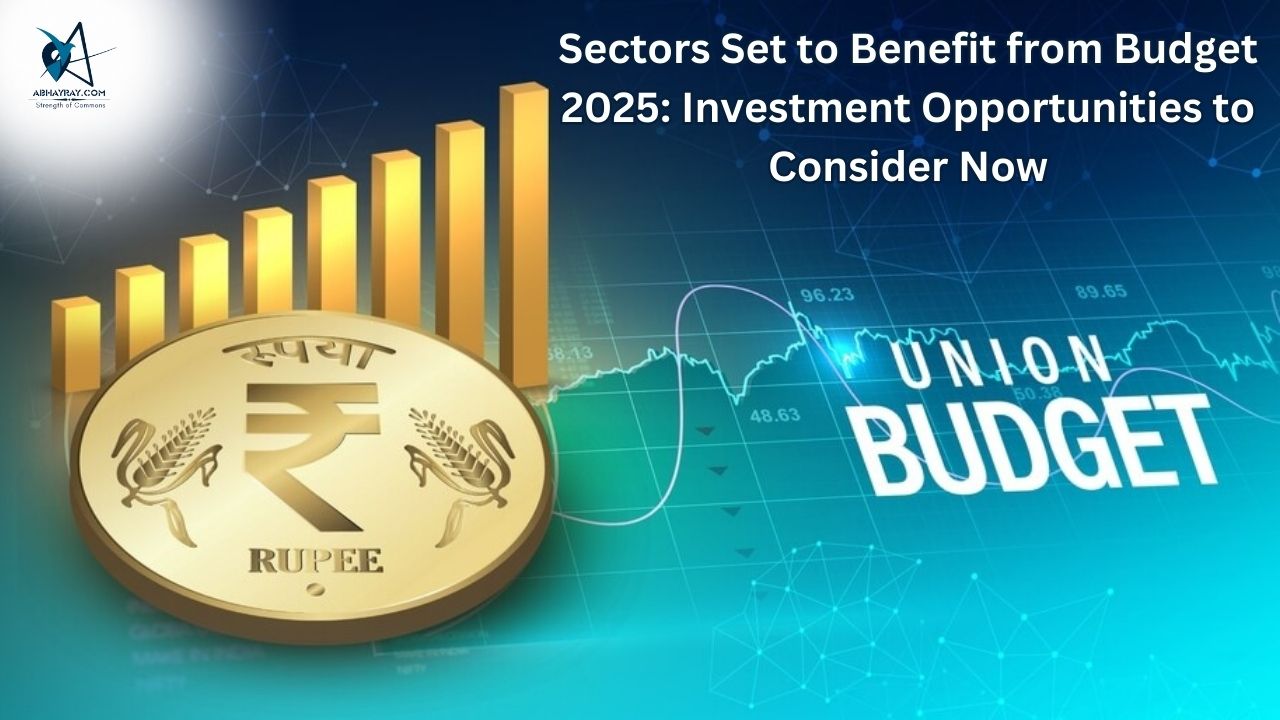Introduction
For the first time in nearly a decade, the budget prioritises consumption and savings over capital expenditure. While analysts debate whether this shift is a temporary adjustment or a broader paradigm change, several sectors including agriculture, capital goods, cement, consumer, financials, telecom, and utilities are poised to benefit from the measures in the budget.
Here, in this article we will look into some of the sectors that can have a positive impact of the Budget 2025 :-
- Power
The power sector continued to be a focus area in the Budget as the finance minister allocated ₹ 48,396 crore towards the power sector, including new and renewable energy, a 30 percent increase over the previous year’s allocation of ₹ 37,143 crore (revised estimate) and 22 percent over the budget estimate of ₹ 39,602 crore. The finance minister also announced a plan to incentivise electricity distribution reforms and augmentation of intra-state transmission capacity by states. This, she noted will improve financial health and capacity of electricity companies. Another major announcement was made on the Nuclear Energy Mission for Viksit Bharat. The FM announced a 100GW target by 2047 as well as setting up of the Nuclear Energy Mission for research & development of Small Modular Reactors (SMR) with an outlay of ₹ 20,000 crore.
Samir Bahl, CEO, Anand Rathi Advisors is of the view that the finance minister has continued to emphasise domestic manufacturing of solar PV cells, EV batteries, grid-scale batteries, energy storage, and others. As a result, stocks within these segment and related to them will continue to do well in the medium term, “Further, additional borrowing initiatives for states (0.5 percent of their GSDP) should provide a fillip to regional power transmission and distribution companies,” he added. Most analysts continue to remain positive on the sector, especially post the recent corrections.Stocks include : L&T, CG Power, NTPC Green Energy and Skipper.
- Infrastructure & Capital Expenditure
In Infrastructure & Capital Expenditure, the government’s ₹10 lakh crore infrastructure push includes the launch of a Public-Private Partnership (PPP) framework for infrastructure projects and a robust asset monetization strategy targeting ₹10 lakh crore by 2030. This is complemented by the Jal Jeevan Mission and a ₹1 lakh crore allocation for urban development projects.
Construction and engineering companies such as the following will benefit from increased infrastructure spending: L&T, KEC International, NCC, UltraTech Cement,Siemens and ABB India. Infrastructure-focused mutual funds, such as the following could see substantial inflows as investors capitalize on the government’s spending initiatives – ICICI Prudential Infrastructure Fund and SBI Infrastructure Fund.
- Housing / Real Estate
SWAMIH Fund 2.0 aims to boost liquidity for stalled affordable and mid-income housing projects, accelerating completion. Revised tax slabs and increased rebates are expected to drive housing demand, while tax simplifications for self-occupied properties and rentals may spur residential investment. The government’s plan to introduce a National Framework for global capability centres (GCC), aimed at guiding states in promoting GCC expansion in tier 2 cities, is expected to drive the creation of new leasing hubs and the development of commercial parks. Focus on strengthening India’s position as global manufacturing hub is likely to augur well for Grade A warehouse leasing. Stocks include Ultratech Cement, Polycab and Asian Paints.
- Travel and Tourism
Saurabh Mukherjea, founder and chief investment officer at Marcellus Investment Managers said that the number of foreign travellers in India remains lower than in 2019. However, the government’s e-visa announcement could help attract more international tourists. Currently, hotel operators and luggage manufacturers are experiencing approximately 25 percent revenue growth, and the finance minister’s initiatives are expected to further boost these sectors.
The finance minister also announced a number of measures to improve tourism like MUDRA loans for homestays, streamlined e-visa facilities along with visa-fee waivers for certain tourist groups, land for building key infrastructure to be provided by states, among others. Stocks include :VIP Industries, Lemon Tree and ITC Hotels.
- Agriculture
The focus of the budget has been clear to revive consumption and increase the farmer income, so the consumers can have some more money at their disposal, said Agarwal. A consumption push will benefit companies in the FMCG, auto, and food ordering space, Agarwal added.
The finance minister in her budget announced a Prime Minister Dhan-Dhaanya Krishi Yojana, which will cover 100 districts with low productivity, moderate crop intensity and below-average credit parameters. The scheme will increase agricultural productivity by adopting crop diversification, augmenting post-harvest storage at the panchayat and block level, and improving irrigation facilities. It will also avail long-term and short-term credit to help 1.7 crore farmers.
Also, the around ₹ 1.5 lakh crore capital expenditure by the government is expected to generate around ₹ 3-4 lakh crore multiplier boost to the economy, said A Balasubramanian, Managing Director and CEO, Aditya Birla Sun Life AMC. He added that expected interest rate cuts will lower capital costs and fuel economic expansion and employment.Stocks include – Dabur India, HUL, Bajaj Auto
- Technology & Innovation
In the Technology & Innovation sector, the creation of a Centre of Excellence in AI for Education and the establishment of a Deep Tech Fund of Funds demonstrate the government’s commitment to fostering cutting-edge technological innovation.
Leading IT services companies are likely to benefit from increased demand for AI and deep tech solutions, while the EdTech startups will benefit from the integration of AI into education, which include : TCS, Infosys, Wipro and UpGrad.
Technology-focused mutual funds are expected to see increased investor interest as AI and deep tech companies expand, including : Aditya Birla, Sun Life Digital India Fund and Tata Digital India Fund.
Conclusion
The Union Budget brings transformative reforms across multiple sectors with a primary focus on driving economic growth, enhancing productivity, and fostering sustainability across multiple industries. These initiatives are expected to significantly impact market dynamics, influencing both stock market trends and mutual fund investment strategies. By providing sector-specific support, the government aims to address long-term challenges and create a favorable environment for private sector investments.
GMICapitals.com RaysVeda.com GetMyStartup.com LawCanal.com GetMyIndia.com ZinCob.com Angeltors.com

